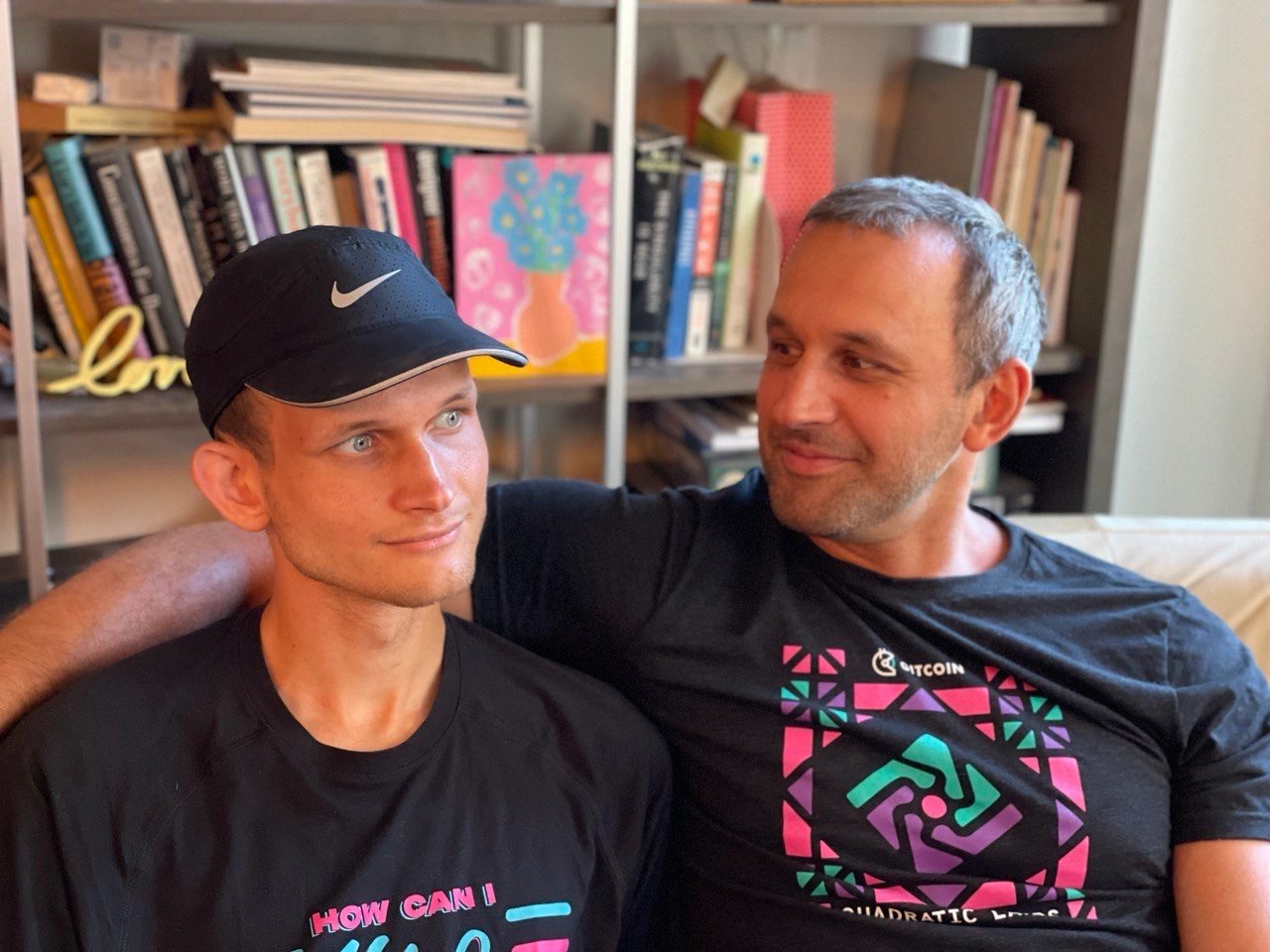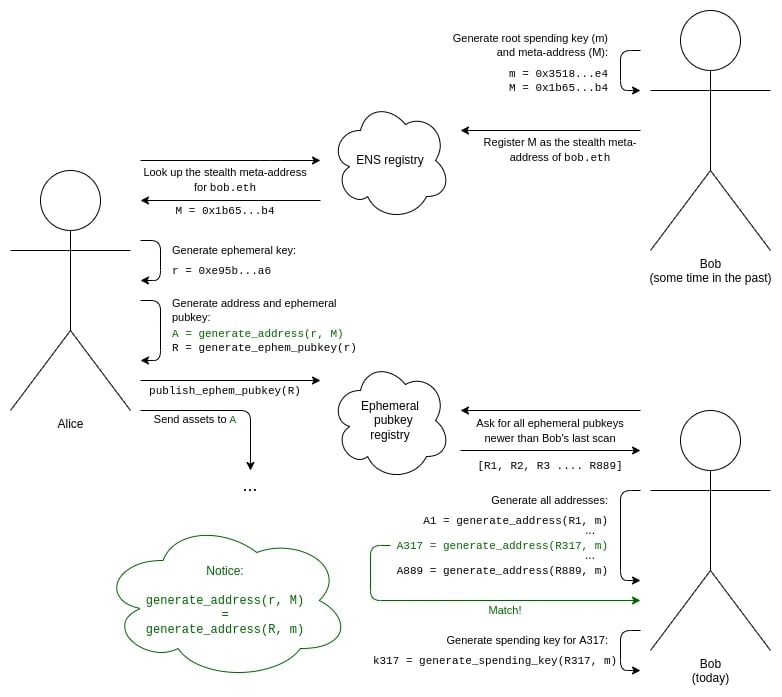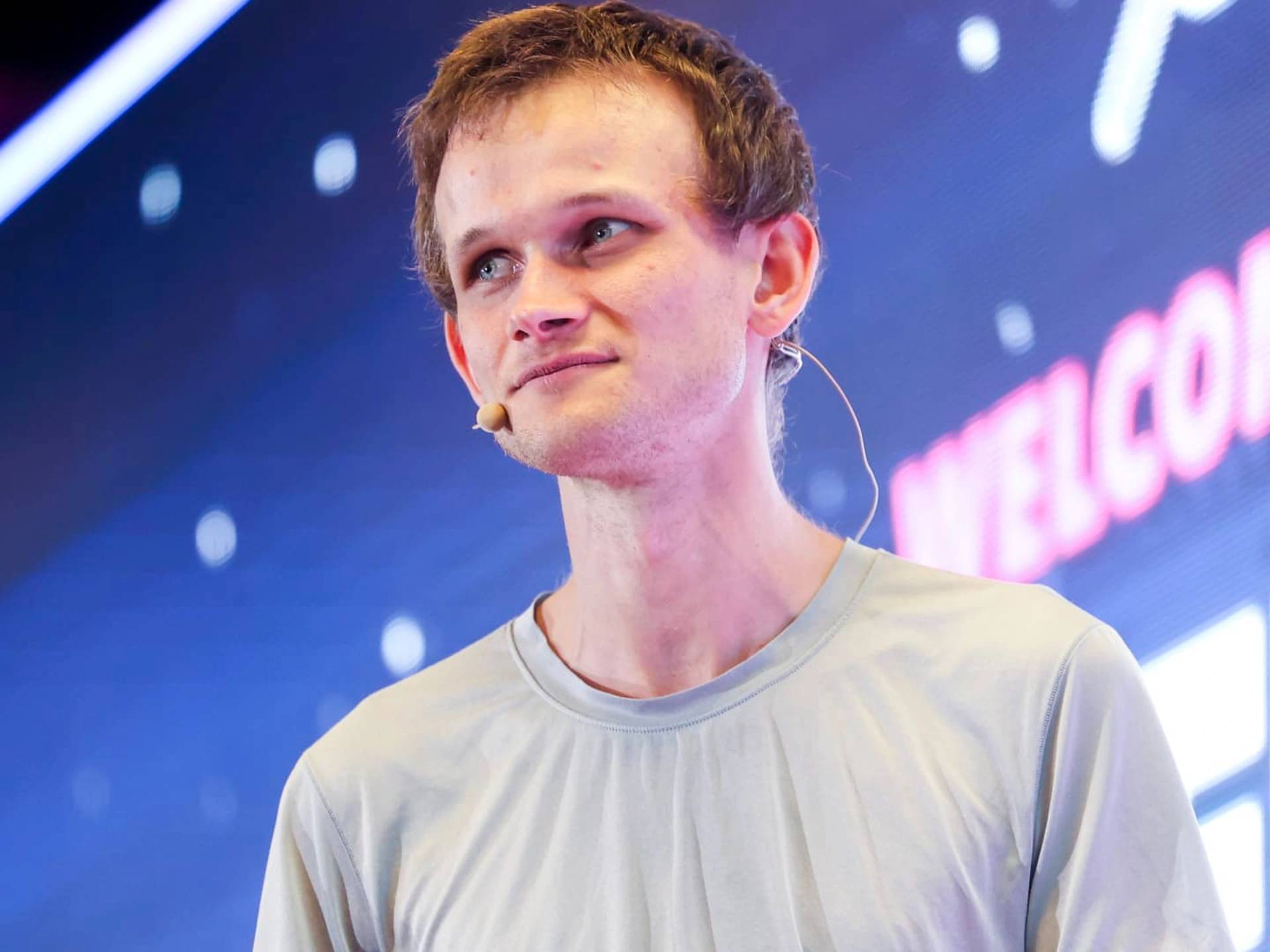위키 구독하기
Share wiki
Bookmark
Vitalik Buterin
0%
Vitalik Buterin
비탈리크 부테린(Vitalik Buterin, 1994년 1월 31일 출생)은 러시아-캐나다 프로그래머이자 작가로, 주로 이더리움의 공동 창립자이자 비트코인 매거진의 공동 창립자로 알려져 있습니다.[10] 부테린은 23세에 포브스 30 Under 30 목록에 처음 등장했습니다.[1]
초기 생애 및 교육
부테린은 러시아 모스크바 주 콜롬나에서 컴퓨터 과학자인 드미트리 부테린과 나탈리아 아멜린(결혼 전 성은 치스차코바) 사이에서 태어났습니다. 그는 더 나은 고용 기회를 찾아 부모님이 캐나다로 이민을 간 6살 때까지 그곳에서 살았습니다. 캐나다의 초등학교 3학년 때 부테린은 영재반에 배치되었고 수학, 프로그래밍, 경제학에 끌린다는 것을 이해하기 시작했습니다. 그는 또한 또래보다 두 배 빠른 속도로 머릿속으로 세 자리 숫자를 더할 수 있었습니다.[10]

부테린은 토론토에 있는 사립 고등학교인 아벨라드 학교를 4년 동안 다녔는데, 그는 다음과 같이 말했습니다.[11]
"학생과 교사 간의 더 긴밀한 관계와 자료가 가르쳐지는 수준의 깊이로 인해 제 인생에서 가장 흥미롭고 생산적인 해가 되었습니다. 배우고 싶게 만들고 학습을 제 주요 목표로 삼게 만들었습니다."
부테린은 주제가 "지적 탐구에 대한 헌신과 집중"으로 제시되었을 때 "전통적인 교육 시스템에 특별히 영감을 받은 적은 없었지만" 다음과 같이 썼습니다.
"제 태도와 결과가 거의 즉시 그리고 극적으로 변하는 것을 알아차렸습니다. 교육은 궁극적으로 개별 사실을 암기하거나 개별 개념을 배우는 것 이상입니다. 가장 중요한 것은 생각하는 방법, 추론하는 방법, 배우는 방법을 배우는 것입니다."
부테린은 17세에 아버지로부터 비트코인에 대해 알게 되었습니다. 2012년에는 국제 정보 올림피아드에서 동메달을 획득했습니다. 2013년에는 코드에 대한 열정을 공유하는 다른 나라의 개발자들을 방문했습니다. 그는 그해 말 토론토로 돌아와 이더리움을 제안하는 백서를 발표했습니다. 그는 워털루 대학교에 다녔지만 2014년에 10만 달러의 Thiel Fellowship을 받고 이더리움을 풀타임으로 작업하기 위해 중퇴했습니다.[12]
새롭게 떠오르는 비트코인 경제에 참여하고 싶었던 그는 비트코인을 채굴하거나 살 수 없었기 때문에 비트코인 토큰을 얻기 위해 블로그에 글을 쓰기 시작했습니다. 그의 기사는 Mihai Alisie의 관심을 끌었고 2011년 말 Bitcoin Magazine을 공동 창립하게 되었습니다. 그는 글쓰기, 여행 및 암호화폐 작업에 집중하기 위해 대학을 떠났습니다.[31]
전 세계의 다양한 암호화폐 프로젝트를 탐색하는 동안 그는 그것들이 너무 전문화되어 있다는 것을 발견했습니다. 그는 더 다재다능한 블록체인의 필요성을 믿고 튜링 완전 프로그래밍 언어를 사용하여 그러한 플랫폼을 만들 수 있는 잠재력을 깨달았습니다.[31]
2018년 11월 30일, 비탈리크 부테린은 Dies Academicus 행사에서 바젤 대학교 경영경제학부로부터 명예 박사 학위를 받았습니다.[12]
경력
Bitcoin Magazine에서의 시작
부테린은 비트코인 블로그를 시작하려는 사람을 비트코인 채팅 포럼에서 만났습니다. 소유자는 기사를 써주는 사람에게 5비트코인(약 3.50달러)을 제안했습니다. 부테린은 비트코인의 주류 관심 부족으로 웹사이트가 곧 폐쇄될 때까지 해당 사이트에 글을 썼습니다.
2011년 9월, 다른 사람이 부테린에게 Bitcoin Magazine이라는 새로운 출판물에 대해 연락했고, 부테린은 최초의 공동 창립자로서 그 자리를 수락하고 주요 작가로 기여했습니다.[13]
또한 부테린은 Bitcoin Weekly를 포함한 다른 출판물에도 비트코인 관련 주제에 대해 글을 썼습니다. 2012년, Bitcoin Magazine은 인쇄판을 발행하기 시작했으며 암호화폐에 전념하는 최초의 진지한 출판물로 언급되었습니다. Bitcoin Magazine은 이후 BTC Media에 인수되었고, 부테린은 2014년 중반까지 계속 글을 썼습니다.[14]
또한 그는 암호화폐 및 블록체인 기술 주제에 대한 전체 길이의 독창적인 연구 논문을 발표하는 동료 검토 학술 저널인 Ledger의 편집 위원회에서 직책을 맡았습니다.[15]
이더리움
부테린은 "분산형 채굴 네트워크와 소프트웨어 개발 플랫폼이 하나로 합쳐진" 것으로 설명되는 이더리움의 공동 창립자이자 발명가이며, 단일 블록체인(암호화 거래 원장)을 공유하는 새로운 암호화폐 및 프로그램 생성을 용이하게 합니다. [16]
부테린은 2013년에 6개월 동안 전 세계를 여행하며 비트코인 개발자들과 이야기를 나눴습니다. 그는 비트코인 블록체인을 반복하여 새롭고 잠재적으로 더 우수한 버전을 구축할 수 있다는 것을 이해했습니다. 이 아이디어를 설명하기 위해 그는 비트코인을 계산기에, 미래의 블록체인을 스마트폰에 연결하고 시스템의 강점을 높이는 동일한 원칙을 블록체인 네트워크에 적용하여 범용성을 높였습니다. [3]
이 프로젝트는 2014년 1월에 공개적으로 발표되었으며, 핵심 팀은 비탈릭 부테린, 미하이 알리시, 앤서니 디 이오리오, 찰스 호스킨슨, 조 루빈, 개빈 우드로 구성되었습니다. 부테린은 또한 마이애미에서 열린 비트코인 컨퍼런스에서 이더리움을 무대에서 발표했습니다. 몇 달 후, 팀은 개발 자금을 조달하기 위해 이더리움 네트워크의 기본 토큰인 이더의 초기 코인 공개(ICO)를 개최하기로 결정했습니다. 거의 동시에 비탈릭 자신도 10만 달러의 틸 펠로우십 보조금을 받았습니다. 팀은 ETH 판매에서 31,000 BTC 이상을 모금했으며, 당시 약 1,800만 달러였습니다. 이더리움 팀은 스위스에 기반을 둔 비영리 단체인 이더리움 재단을 설립했으며, 이 재단은 이더리움의 오픈 소스 소프트웨어 개발을 감독하는 임무를 맡았습니다. [3]
일련의 테스트 및 버그 바운티 단계를 거쳐 2015년 여름에 이더리움이 출시되었습니다. 첫 번째 버전은 프론티어로 알려졌으며, 매우 기본적인 것이었지만 디지털 앱 개발의 길을 열었습니다. [2]
그의 인터뷰 중 하나에 따르면 부테린은 월드 오브 워크래프트 개발자들이 그의 소중한 캐릭터를 약화시킨 후 이더리움을 만들었습니다. 그의 About Me 페이지에 따르면 그는 2007년부터 2010년까지 월드 오브 워크래프트를 플레이했지만 게임 제작사 블리자드가 그의 "사랑하는 흑마법사의 생명력 흡수 주문"의 힘을 감소시킨 후 그만두기로 결정했습니다. [4]
또한 부테린은 이더리움 네임 서비스를 디지털 아이덴티티와 관련하여 메타버스의 핵심 부분으로 언급했습니다.
“이더리움 도메인 이름 서비스 ENS는 단연코 가장 성공적인 비금융 이더리움 애플리케이션이며, 기본적으로 분산형 전화번호부와 비교할 수 있습니다.”[6]
Shapella로 알려진 이더리움의 상하이 및 카펠라 포크는 2023년 4월 12일 에포크 194,048에서 출시되어 이더리움 스테이커가 처음으로 이더를 인출할 수 있게 되었습니다. 이 이벤트는 2022년 9월에 이더리움을 지분 증명 합의로 전환한 The Merge 이후 네트워크의 첫 번째 주요 업그레이드였습니다. Shapella가 출시된 후 부테린은 이더리움 재단 라이브 스트림에서 다음과 같이 말했습니다.[25]
“Shapella 업그레이드는 PoS 전환의 일부이지만 병합에 제때 포함되지 않은 일부 사항에 대한 루프를 닫습니다. 인출은 분명히 매우 중요합니다.”라고 부테린은 이더리움 재단 라이브 스트림에서 말했습니다. “이후의 즉각적인 다음 초점은… 확장될 것입니다.”
2023년 6월 9일에 게시된 블로그 게시물에서 부테린은 이더리움이 사용을 확장하려면 성숙하는 데 필요한 사항에 대한 아이디어를 제시했습니다. 부테린은 이를 “세 가지 전환”이라고 부르며 확장, 개인 정보 보호 및 지갑 보안을 다루는 로드맵을 발표했습니다. 부테린은 레이어 2 또는 “L2” 확장 솔루션, 스마트 계약 지갑으로의 전환, 자금 이전에 대한 더 큰 개인 정보 보호의 전환을 중심으로 진화해야 한다고 말했습니다. 부테린은 다음과 같이 말했습니다.
"이더리움이 사용 방식을 확장하려면 세 가지 주요 전환을 거치거나 자체 미래를 훼손할 위험이 있습니다."
이 세 가지 전환 중에서 부테린은 이 전환의 중요한 부분으로 “롤업”이라고 불리는 L2 솔루션의 사용을 확대해야 한다고 강조했습니다. 일반적인 L2 기능은 기본 이더리움 블록체인 또는 L1에서 트랜잭션을 처리합니다. 부테린은 다음과 같이 말했습니다.
"스마트 계약 지갑으로의 전환에는 해결해야 할 "기술적 문제"가 있지만 해결하는 데 "큰 부담"이 되지 않습니다."
세 가지 전환 중에서 부테린은 개인 정보 보호 문제를 해결하는 것이 더 큰 과제 중 하나가 될 것이라고 우려를 표명했습니다. 그는 다음과 같이 말했습니다.
“개인 정보 보호 없이는 이더리움이 실패합니다. 모든 트랜잭션을 문자 그대로 누구나 볼 수 있도록 공개적으로 사용할 수 있다는 것은 많은 사용자에게 너무 높은 개인 정보 보호 희생이기 때문입니다.”
이를 해결하기 위해 부테린은 사용자 신원을 보호하는 데 도움이 되는 "스텔스 주소"를 사용할 것을 제안했지만 이러한 방법은 비용 및 기능 문제로 인해 여전히 성숙하고 있습니다. [23][24]
The Merge
8년간의 작업 증명 합의 방식을 사용한 후, 이더리움 블록체인은 메인넷과 비콘 체인의 병합을 통해 지분 증명(PoS) 합의 방식으로 전환을 완료했습니다. 병합의 또 다른 핵심적인 변화는 전력 소비 감소로, 이더리움의 에너지 사용량을 99% 줄였습니다. 병합은 2022년 9월 15일에 완료되었습니다. [19]
병합 기간 동안 부테린은 이더리움 재단이 주최한 이더리움 메인넷 병합 시청 파티 라이브 스트림에 참여했습니다. 병합에 대해 흥분되는지 묻는 질문에 부테린은 다음과 같이 답했습니다.
"작업 증명 시대에서 벗어나게 되어 매우 기쁩니다."
그는 또한 네트워크의 PoW에서 PoS로의 전환이 수년간 그의 계획에 있었다고 언급했습니다.
"[이것은] 거의 처음부터 이더리움 생태계의 꿈이었습니다. 우리는 2014년 1월 Slosher에 대한 블로그 게시물로 지분 증명 연구를 시작했습니다." [20]
병합이 완료된 후 부테린은 다음과 같은 트윗을 게시했습니다.
"그리고 완료되었습니다! 모두 병합을 축하합니다. 이것은 이더리움 생태계에 큰 순간입니다. 병합을 실현하는 데 도움을 준 모든 분들은 오늘 매우 자랑스러워해야 합니다." [18]
스텔스 주소
부테린은 이더리움의 프라이버시를 높이는 방법에 대한 관심을 공유했습니다. 그는 블로그 게시물에서 네트워크 사용자가 자신의 프라이버시를 더 잘 보호할 수 있도록 하는 도구인 스텔스 주소를 설명했습니다. 이는 자신의 공개 주소에 암호화 방식으로 연결되지만 거래 당사자만 발견할 수 있는 지갑 주소로 구성됩니다.
부테린은 이 계획을 통해 더 많은 디지털 자산을 프라이버시 중심 방식으로 한 사용자에서 다른 사용자로 전송할 수 있다고 밝혔습니다. 그는 이더리움 기반 프라이버시 프로토콜인 토네이도 캐시는 주요 암호화폐의 거래만 허용한다고 지적했습니다. 스텔스 주소는 프로젝트 규모에 관계없이 모든 ERC-20 토큰, POAP, NFT, ENS 이름 및 기타 디지털 자산을 비공개로 보낼 수 있는 기회를 제공합니다.
2023년 1월 20일, 부테린은 "스텔스 주소에 대한 불완전한 가이드"라는 기사를 게시했습니다. 그는 여러 다른 맥락에서 이더리움의 프라이버시 상태를 개선할 수 있는 또 다른 범주의 도구인 스텔스 주소의 메커니즘과 사용 사례를 설명했습니다. 이 기사는 스텔스 주소 시스템의 정의와 "타원 곡선 암호를 사용한 스텔스 주소" 및 "스텔스 주소 및 양자 저항 보안"과 같은 다른 정교한 기술 주제를 설명했습니다.

오픈 소스 소프트웨어
부테린은 다른 오픈 소스 소프트웨어 프로젝트에 개발자로 기여했습니다. 몇 가지 초기 예로는 Kryptokit, pybitcointools, multisig.info, btckeysplit이 있습니다. 그는 또한 Cody Wilson의 DarkWallet, Bitcoin Python 라이브러리, 그리고 암호화폐 마켓플레이스 사이트인 Egora에도 기여했습니다. [14]
중국의 이더리움
2014년, 이더리움 초기 백서 발표 후 부테린은 중국으로 건너가 상당한 규모의 이더리움 커뮤니티를 만났습니다. 그는 컨퍼런스, 밋업, 이벤트를 통해 개발자, 열성 팬, 비즈니스 리더들과 교류하며 이더리움과 잠재적 응용 분야에 대해 논의했습니다. [31]
중국어 사용 커뮤니티와의 효과적인 소통을 위해 부테린은 중국어로 인터뷰를 진행하고, 중국 언론 매체와 협력하고, 중국 소셜 미디어 플랫폼을 활용했습니다. [31]
2016년 5월에는 11개의 지역 거래소로 구성된 ChinaLedger Alliance가 설립되었습니다. 이 얼라이언스는 중국 규제 요건을 준수하면서 오픈 소스 블록체인 프로토콜 개발을 목표로 했으며, 부테린과 블록체인 커뮤니티의 다른 주요 인물들이 자문 지원을 제공했습니다. [31]
또한 부테린은 중국의 블록체인 기술 투자에 중점을 둔 벤처 캐피털 회사인 Fenbushi Venture Capital의 제너럴 파트너로 활동하고 있습니다. [31]
중국의 ICO 및 암호화폐 거래소와 같은 암호화폐 관련 활동에 대한 규제 제한에도 불구하고 이더리움과 그 기반 기술은 명시적으로 표적이 되지 않았습니다. [31]
이더리움 기반 프로젝트는 탈중앙화 거래소, 공급망 솔루션, 이더리움의 스마트 계약 기능을 활용한 금융 애플리케이션을 포함하여 중국에서 등장했습니다. 그러나 이더리움은 특정 산업 또는 사용 사례에서 NEO 및 VeChain과 같은 다른 중국 블록체인 프로젝트와 경쟁에 직면해 있습니다. [31]
러시아의 이더리움
2017년 8월, 부테린은 모스크바의 스콜코보 혁신 센터에서 강연하여 5,000명 이상의 참석자를 모았습니다. 그는 영국, 싱가포르와 함께 러시아가 블록체인 연구에 참여하고 있음을 언급하며 모스크바가 이더리움 네트워크에서 중요한 위치를 차지하고 있다고 강조했습니다. [31]
방문 기간 동안 부테린은 블라디미르 푸틴 대통령이 블록체인 기술에 대해 인지하고 있다고 언급하며 높은 관심을 시사했습니다. 언론 보도에 따르면 부테린의 푸틴 대통령과의 만남은 그의 방문의 전제 조건이었다고 추측했습니다. 그들은 러시아에서 부테린 기술의 잠재적 응용 분야에 대해 논의했으며 대통령의 지원을 받았습니다. [31]
2017년 10월, 러시아 최대 국영 은행인 스베르방크는 전자 결제 서비스 제공업체인 QIWI와 함께 Enterprise Ethereum Alliance에 가입했습니다. 스베르방크는 규제 기관 및 기타 기관과의 협력에서 진전을 보고했으며 금융 상품 테스트를 성공적으로 수행했습니다. [31]
방문 기간 동안 부테린은 Yota Services의 CEO인 블라디슬라프 마르티노프와 협력하여 Ethereum Russia를 설립했습니다. 이 이니셔티브는 국영 러시아 개발 은행인 Vneshtorgbank(VTB)에 대한 교육 프로그램 및 지원을 제공하는 것을 목표로 합니다. VTB는 국립 과학 기술 대학(MISiS)에 블록체인 연구 센터를 지원했으며, Ethereum Russia는 이를 지원할 것입니다. 이 센터는 공공 및 민간 기관과 협력하여 정부 서비스 솔루션을 개발하는 것을 목표로 합니다. [31]
수상 및 표창
- Thiel Fellowship Award, 2014
- World Technology Award (IT 소프트웨어 부문), 2014
- Fortune 40 under 40 선정, 2016
- Forbes 30 under 30 선정, 2018
- Fortune the ledger 40 under 40 선정, 2018
- 바젤 대학교 명예 박사, 2018
자선 활동
비탈릭은 2017년에 머신 인텔리전스 연구소에 763,970달러 상당의 이더를 기부했습니다. 또한 2018년에는 회춘 생명공학 및 인간 수명 연장 연구를 위해 SENS 연구 재단에 240만 달러 상당의 이더를 기부했습니다. 2018년에는 이더리움 기반의 OmiseGO 개방형 결제 플랫폼과 함께 아프리카의 극빈 난민을 돕는 것을 목표로 하는 GiveDirectly 조직에 100만 달러 상당의 이더를 기부했습니다. [17]
부테린은 2018년에 인터넷 아카이브에 93,469달러 상당의 이더를 기부했으며, Pineapple Fund에서 동일한 금액을 매칭했습니다. [17]
부테린은 2020년에 SENS 연구 재단에 50,000달러를 기부했습니다. 샘 뱅크먼-프리드 및 Haseeb Qureshi와 함께 트위터 사용자들의 공개 투표를 통해 노화 및 노화 관련 질병 퇴치를 위해 SENS 연구 재단에 총 150,000달러를 기부했습니다. [7]
2021년, 부테린은 인도 기술 기업가 Sandeep Nailwal이 설립한 인도 코로나 구호 기금에 10억 달러 이상의 암호화폐를 기부했습니다. 5월에는 단일 거래로 50조 개의 SHIB 토큰을 기부했습니다. 이 기부는 당시 유통량의 5%에 해당했습니다. 앞서 4월에는 이더 및 메이커 토큰으로 약 600,000달러를 기금에 기부했습니다. [5]
부테린은 2021년 5월 12일에 인간 수명 연장에 초점을 맞춘 메투셀라 재단에 3억 3,600만 달러 상당의 430조 개의 Dogelon Mars($ELON)를 기부했습니다. [8]
2022년, 비탈릭은 우크라이나의 Unchain Foundation에 750 ETH를 기부했으며, 이는 약 250만 달러로 환산됩니다. Unchain Foundation은 전쟁 중 우크라이나에 인도적 지원을 제공합니다. 그는 또한 우크라이나 디지털 전환부가 설립한 정부 주도 인센티브인 Aid for Ukraine에 750 ETH를 추가로 기부했습니다. [9]
인공지능에 대한 견해
2023년 11월 27일, 비탈릭 부테린은 자신의 블로그 게시물인 나의 기술 낙관주의[26]에서 인공지능(AI)이 총, 비행기, 소셜 미디어와 같은 다른 발명품과는 '근본적으로 다르다'고 논했습니다. 부테린은 AI가 인간에 대항하여 새로운 정점 종이 될 수 있는 새로운 형태의 '마음'을 개발할 수 있다고 설명했습니다. [27]
부테린은 인공지능의 실존적 위험, 즉 인류의 멸종을 초래할 수 있다는 점을 인정했습니다.
"이는 극단적인 주장입니다. 기후 변화의 최악의 시나리오, 인공적인 팬데믹 또는 핵전쟁이 초래할 수 있는 만큼의 피해가 발생하더라도, 잔해를 수습하기 위해 온전하게 남아 있을 문명의 섬이 많이 있을 것입니다." - 그는 말했습니다.
"그러나 초지능 AI가 우리에게 등을 돌리기로 결정한다면 생존자를 남기지 않고 인류를 영원히 끝낼 수도 있습니다."라고 부테린은 말했습니다. "화성조차 안전하지 않을 수 있습니다." [26]
The Defiant의 카미 루소는 이 기사를 다음과 같이 요약했습니다.
"부테린의 'd/acc' 철학은 방어, 분산화 및 인간 번영을 보장하는 기술에 초점을 맞춰 기술 개발에서 신중하고 균형 잡힌 길을 옹호합니다.
"이 개념은 마크 안드레센과 같은 인물이 옹호하는 억제되지 않은 기술 낙관주의에 대한 균형추로 등장하며 e/acc(효과적인 가속주의) 운동에 도전합니다." [29][30]
부테린은 AI Impacts의 2022년 설문조사[28]를 지적했는데, 이 설문조사에서 참가자의 5%에서 10%가 AI 또는 AI를 통제하지 못한 인간으로 인해 인류가 멸종에 직면할 것이라고 믿고 있다고 밝혔습니다. 그는 폐쇄적이고 독점적인 기업 및 벤처 캐피털 펀드보다는 보안에 중점을 둔 오픈 소스 운동이 AI 개발을 주도하는 것이 이상적이라고 말했습니다. [26]
"만약 우리가 초지능적이면서도 '인간적인' 미래, 즉 인간이 단순한 애완동물이 아니라 실제로 세상에 대한 의미 있는 주체성을 유지하는 미래를 원한다면, 이와 같은 것이 가장 자연스러운 선택처럼 느껴집니다."라고 그는 말했습니다. [26]
비탈릭은 또한 이러한 위험을 줄이는 방법에 대한 새로운 접근 방식의 필요성을 지적했습니다. 그는 OpenAI의 거버넌스 구조를 좋은 예로 들었습니다. 그는 다음과 같이 썼습니다.
"OpenAI가 세상을 날려버릴 위험이 있는 움직임에 맞서 견제와 균형을 유지하려는 욕구와 초기 자본을 제공하는 투자자를 만족시키기 위해 이익을 내야 할 필요성의 균형을 맞추려는 좋은 의도의 노력처럼 보입니다. 그러나 실제로 최근 샘 알트만을 해고하려는 시도는 구조가 형편없는 실패처럼 보이게 만듭니다. 그것은 비밀 정보에 근거하여 주요 결정을 내리고 직원들이 대량으로 사직하겠다고 위협할 때까지 그들의 추론에 대한 세부 사항을 제공하기를 거부한 비민주적이고 책임이 없는 5명의 이사회에 권력을 집중시켰습니다." [26]
어쨌든 비영리 이사회는 회사의 직원들이 즉석에서 사실상의 노동조합을 만들어... 그들에 맞서 억만장자 CEO를 지지하도록 손을 너무 서투르게 놀렸습니다." [26]
그는 소수의 사람들에게 "극단적이고 불투명한 권력"을 부여하여 그들이 현명하게 사용할 것이라는 희망을 갖는 것에 대해 경고하며, 대신 "d/acc"—즉, 방어, 분산화, 민주주의 및 차별의 철학을 선호했습니다. 그는 이러한 사고방식이 효과적인 이타주의자, 자유지상주의자, 다원주의자, 블록체인 옹호자, 태양 및 달 펑크에 적응할 수 있다고 말했습니다. [26]
"방어를 선호하는 세상은 여러 가지 이유로 더 나은 세상입니다. 우선 물론 안전의 직접적인 이점입니다. 사망하는 사람이 적고, 경제적 가치가 파괴되는 경우가 적으며, 갈등에 낭비되는 시간이 적습니다. 그러나 덜 알려진 것은 방어를 선호하는 세상이 더 건강하고 개방적이며 자유를 존중하는 형태의 거버넌스가 번성하기 더 쉽게 만든다는 것입니다." [26]
부테린은 우리가 수천 년 동안 인간의 잠재력을 확장하기 위해 기술을 개발해 왔고 앞으로도 더 많이 개발할 것이기 때문에 "우리 인간은 우주에서 가장 밝은 별"이라고 결론지었습니다.
"그래서 저는 우리가 우주에서 알고 보아온 모든 것 중에서 우리 인간이 가장 밝은 별이라고 굳게 믿습니다. 우리는 불완전하더라도 때로는 '선'에 대해 진지하게 관심을 갖고 더 잘 봉사하기 위해 행동을 조정하려는 진지한 노력을 기울이는 유일한 존재입니다. 20억 년 후, 지구 또는 우주의 일부가 여전히 지구 생명의 아름다움을 지니고 있다면 우주 여행 및 지구 공학과 같은 인간의 인공물이 그것을 가능하게 했을 것입니다." - 비탈릭은 그의 블로그 게시물에서 결론지었습니다. [26]
잘못된 내용이 있나요?
